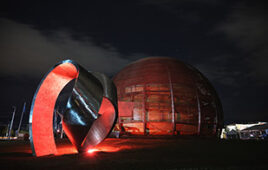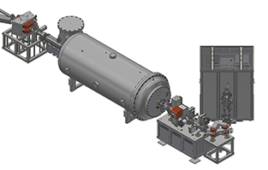A team of scientists from
University of Colorado Denver has developed a novel energy system that
increases the amount of energy harvested from microbial fuel cells (MFCs) by
more than 70 times. The new approach also greatly improves energy efficiency.
MFCs are emerging as a way to use bacteria to directly harvest electricity from
biodegradable materials, such as wastewater or marine sediments.
The energy from a single MFC
reactor is usually too low to be used in the real world. But CU Denver
engineers developed a harvesting system to allow active extractions of
electrons from bacteria.
“This process changes the way we
think about MFC energy,” said Zhiyong (Jason) Ren, PhD, assistant professor of
civil engineering in CU Denver’s College
of Engineering and
Applied Science. “This may be a game changer for waste treatment or remote
sensing because we’ve proven we can harvest energy as well as generate
savings.”
Data collected shows the system
increased energy output by 76 times and improved energy efficiency by 21 times
compared to a commonly used charge pump.
“The energy output from an MFC
reactor is difficult to use directly,” said Jae-Do Park,
PhD, assistant professor of electrical engineering at CU Denver, who developed
the harvesting scheme and prototype system. “That is why the role of the
control system is so important. Our prototype has shown great progress toward
harvesting energy.”
The article, “Active Energy
Harvesting from Microbial Fuel Cells at the Maximum Power Point without Using
Resistors” was published in Environmental Science & Technology.




